Speakers
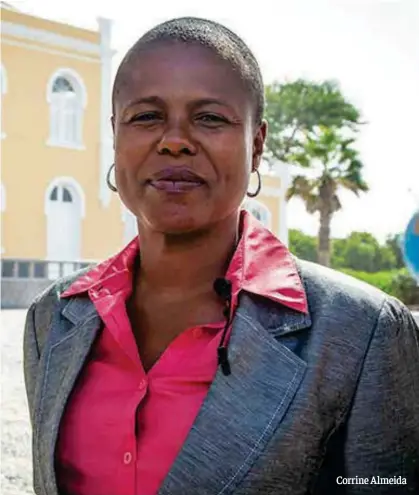
Corrine Almeida
Universidade Técnica do Atlântico Cape VerdeBiological Oceanographer with over two decades of experience. Since 2001, I've served as a lecturer at the Institute of Marine Engineering and Sciences (ISECMAR) within the Atlantic Technical University. Presently, I hold the position of Director of the Master's Program on Climate Change and Marine Science in the framework of the WASCAL program (West African Science Service Centre on Climate Change and Adapted Land Use). My research expertise predominantly lies in the ecology and conservation of coral communities within Marine Protected Areas, with focus on coastal oceanography, especially the interactions among environmental factors in these ecosystems. Additionally, I serve as a marine and coastal environmental consultant.
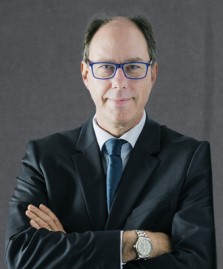
Nicolas Arnaud
Director, National Institute for Earth Sciences and Astronomy, Centre national de la recherche scientifique (CNRS)Nicolas Arnaud is Senior of Researcher at CNRS, Director of the National Institute for Earth and Space Sciences. Author of more than 75 international articles, he is the founder and former director of the Montpellier Mediterranean Environmental Research Observatory, dedicated to the observation of Mediterranean natural environments and their evolution under the effect of climate change. He has been regularly involved in the animation of national and international programs dedicated to the observation of the earth and the effects of global change.
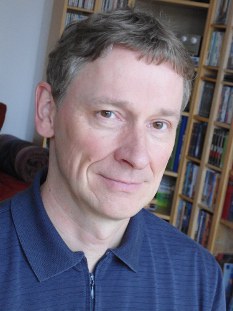
Oliver Benson
Humboldt University Berlin Berlin Quantum AllianceOliver Benson is Professor for Experimental Nano Optics at Humboldt-University Berlin. He received his PhD in 1995 at LMU München and MPI for Quantum Optics, Garching. He turned to solid-state quantum optics during his postdoctoral stay at Stanford University from 1997 to 1999. He led an Emmy-Noether Junior Group at Konstanz University, before he went to Berlin in 2001. His research interest are quantum optical model systems involving atoms and solid-state quantum emitters coupled via photonic nanostructures. His group demonstrates first steps towards photonic quantum technology.
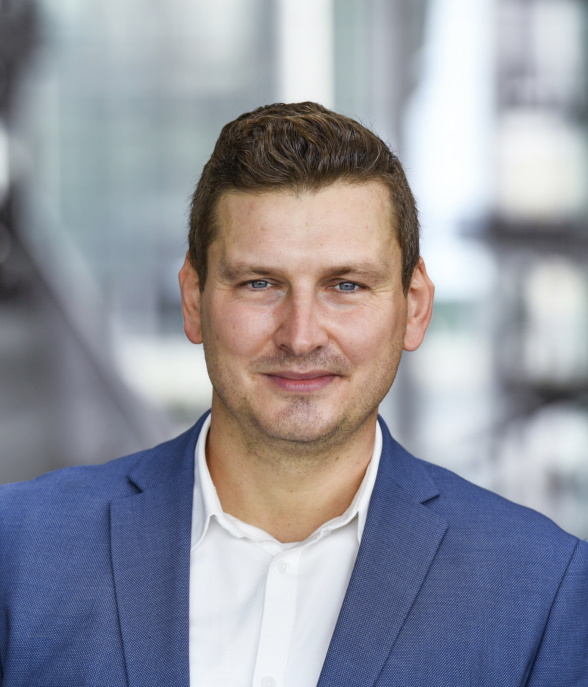
Mario Brandenburg
Parliamentary State Secretary, German Federal Ministry of Education and Research (BMBF)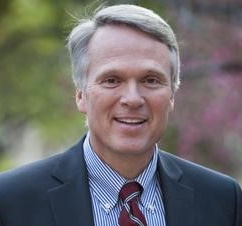
Joseph Broz
Vice President, Quantum Supercomputing Programs, IBM Thomas J. Watson Research CenterDr. Broz has responsibility for leading IBM Quantum’s quantum-centric supercomputing programs and adoption of advanced quantum computing capabilities. He also is responsible to BD and Sales in the public and academic markets. Joe joined IBM Quantum in March 2021 after serving as the founding Executive Director of the federally chartered quantum economic development consortium (QED-C) under the National Quantum Initiative Act. He has supported DOE, DOD, Air Force, Army, Navy, DHS, NIH, NIAID, DOJ, and other departments through agency research, consulting contracts, and advisory boards. Prior to the QED-C, he served as Vice President of Applied Sciences at SRI, where he led laboratories in applied science, government business development, technical and business strategy. He also served as VP of Business Development and Research at Titanium Metals, and Laboratory Director of Tenneco, Inc., where he was responsible for product development, manufacturing operations, quality, technology, and environmental management across corporate divisions worldwide. He served as a White House Fellow for the Office of Science and Technology Policy in the administration of George H.W. Bush. He was a British American Fellow at Johns Hopkins SAIS, and a Senior Fellow for National Security and Energy at NORC at the University of Chicago. Broz has a B.S. in physics from the Massachusetts Institute of Technology and a Ph.D. in physics from the Swiss Federal Institute (ETH) in Zurich.

Kim Budil
Director, Lawrence Livermore National LaboratoryKimberly S. Budil sets the strategic vision
for Lawrence Livermore National
Laboratory and exercises broad delegated powers to ensure successful
execution of
programs and operations to enhance national security through
application of cutting edge
science and technology and to maintain an outstanding and diverse
workforce. She leads
the development and implementation of the Laboratory’s scientific
vision, goals and
objectives and serves as the Laboratory’s highest-level liaison with
the Department of
Energy, National Nuclear Security Administration, the LLNS Board of
Governors, the
University of California and other government, public and private
organizations.
Budil leads a workforce of more than 8,700 employees and manages an
annual operating
budget of approximately $3 billion. Along with the directors of Los
Alamos and Sandia
national laboratories, she shares the responsibility of providing the
United States
government with an annual institutional assessment of the safety,
security, and
effectiveness of the U.S. nuclear weapons stockpile and enterprise.
She is the 13th
director of the Laboratory and serves as president of Lawrence
Livermore National
Security, LLC.
Budil has held roles of increasing management responsibility at the
Laboratory, most
recently serving as principal associate director for Strategic
Deterrence. Budil served
as a detailee twice in Washington, D.C and was Vice President for
National Labs at the
University of California Office of the President. She currently serves
on several boards
and participates in numerous professional and community outreach
activities.
Budil holds a Ph.D. in engineering and applied science from the
University of
California, Davis, where she was a Hertz Fellow, and a B.S. in physics
from the
University of Illinois at Chicago.

Susanne Buiter
Scientific Executive Director, Helmholtz Centre Potsdam - GFZ German Research Centre for Geosciences and Vice President Helmholtz Association
Michael Campbell
Former Director, Laboratory for Laser Energetics, University of RochesterDr. Michael Campbell is an internationally known expert in Inertial Fusion, High Energy Density Physics, high power lasers and their applications and advanced energy technologies including Generation IV nuclear fission reactors and biofuels. He has won numerous awards including Department of Energy’s E. O. Lawrence Award, the American Nuclear Society’s Edward Teller Award, the American Physical Society’s John Dawson Award, the Department of Energy’s Excellence in Weapons Research Award, and the Leadership Award of Fusion Power Associates. He has received an honorary Doctor of Science from the University of Rochester. He is a Fellow of the American Physical Society and the Optica (formerly OSA). He has published over 250 articles in scientific journals and holds 3 patents. Campbell has worked in various scientific and leadership positions at both federal laboratories and the private sector including Lawrence Livermore National Laboratory where he was the originator of the National Ignition Facility, General Atomics, Logos Technologies, and Sandia National Laboratory. He has received his degrees from the University of Pennsylvania, Princeton University, and the University of Western Sydney. He is presently a adjunct Professor at the University of Nevada, Reno and a Professor in Residence at the University of California-San Diego.
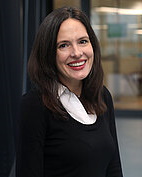
Serena DeBeer
Director, Max Planck Institute for Chemical Energy Conversion
Cornelia Denz
President, Physikalisch-Technische Bundesanstalt (PTB)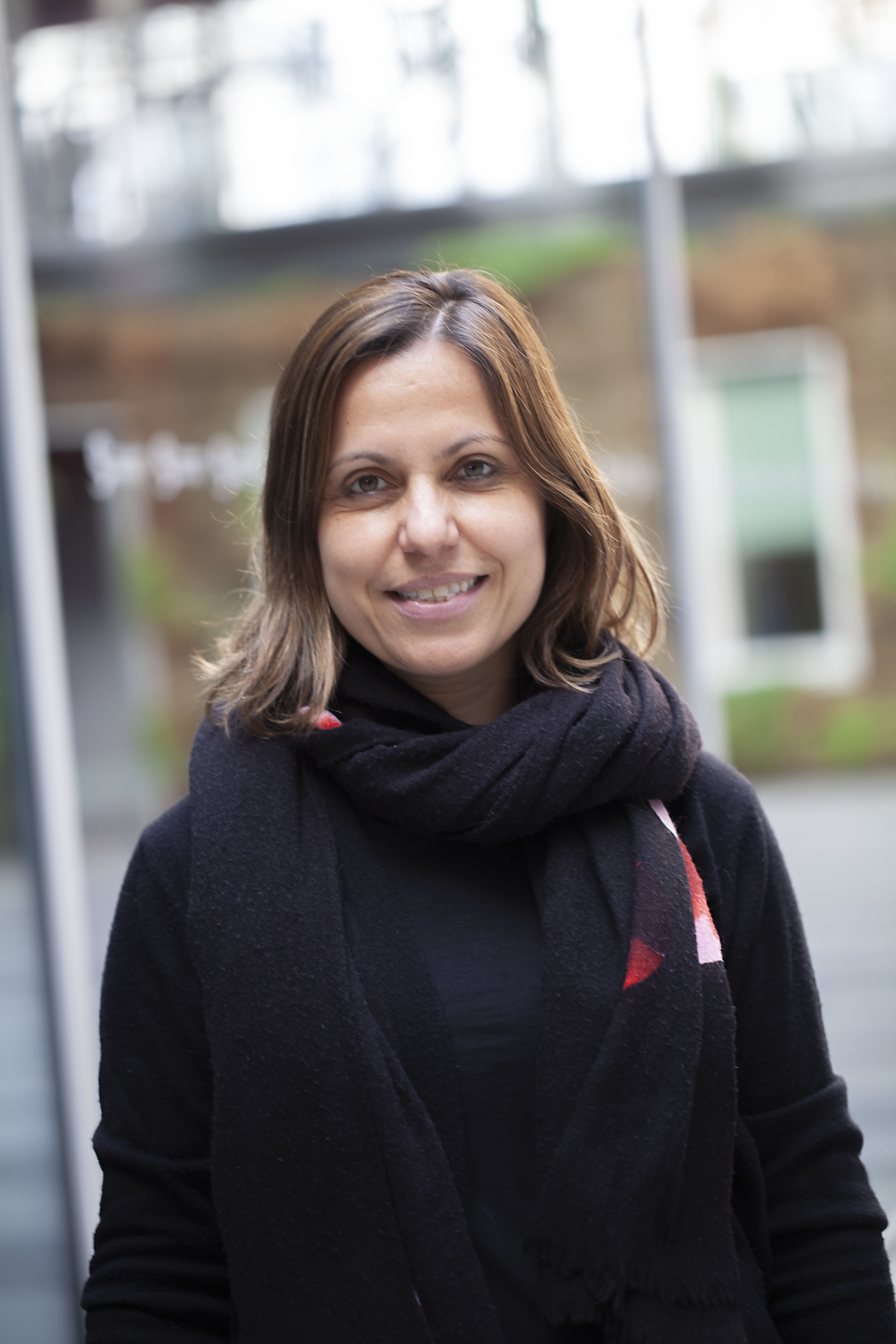
Eleni Diamanti
CNRS and Sorbonne Université, Paris Centre for Quantum TechnologiesEleni Diamanti is CNRS research director at the LIP6 laboratory of Sorbonne University in Paris. She received her Diploma in Electrical and Computer Engineering from the National Technical University of Athens in 2000 and her PhD in Electrical Engineering from Stanford University in 2006. She then worked as a Marie Curie postdoctoral researcher at the Institute of Optics Graduate School in Palaiseau before joining the CNRS in 2009. Her research focuses on experimental quantum cryptography and communication, and on the development of photonic resources and applications for quantum networks. She is a recipient of a European Research Council Starting Grant, coordinator of the Paris Centre for Quantum Technologies, and was awarded the CNRS silver medal in 2024. She is also cofounder and scientific advisor of the start-up company Welinq that specializes in quantum interconnect technology.
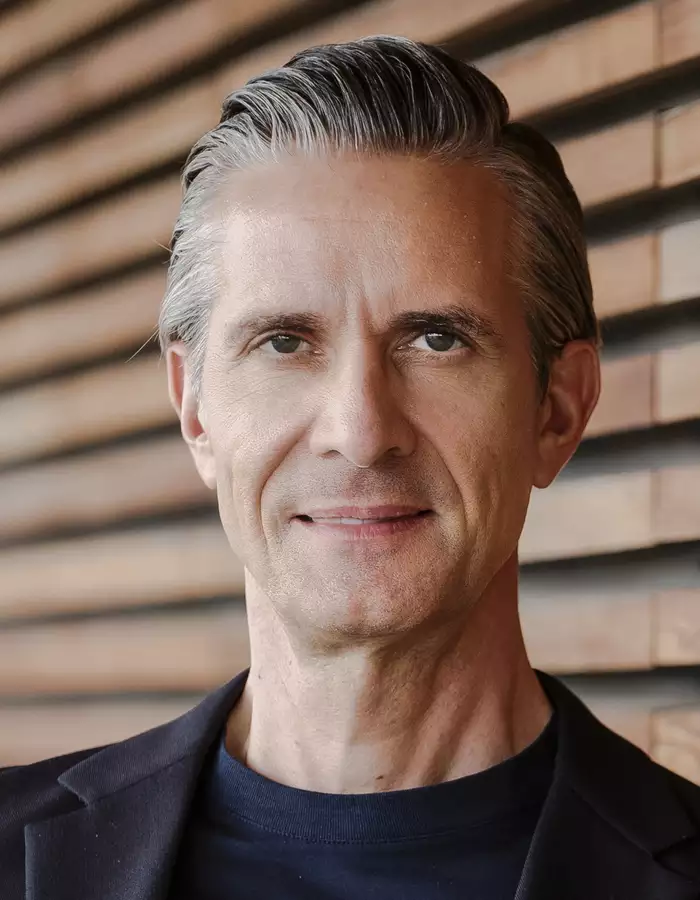
Christian Doeller
Vice President, Max Planck SocietyBorn in Würzburg, Germany; Studies in Psychology at University of Würzburg, Humboldt University Berlin & University of Bonn, Germany; Studies in Computer Science, Bonn; PhD in Psychology, Saarland University, Saarbrücken, Germany (2005); Research Fellow, Institute of Cognitive Neuroscience, ICN & Department of Anatomy and Developmental Biology, University College London, UCL, London, UK (2004); Senior Research Fellow, ICN & Institute of Neurology, UCL (2006); Associate Professor & Principal Investigator, Donders Institute for Brain, Cognition and Behaviour, Radboud University, Nijmegen, the Netherlands (2010); Professor of Medicine (Neuroscience), Kavli Institute for Systems Neuroscience, Norwegian University of Science and Technology, NTNU, Trondheim, Norway (2016); Director, The Egil and Pauline Braathen and Fred Kavli Centre for Cortical Microcircuits, Kavli Institute for Systems Neuroscience, NTNU (2017); Director, Department of Psychology, Max Planck Institute for Human Cognitive and Brain Sciences, Leipzig, Germany (2018). Honorary Professor of Psychology (Learning & Memory), Leipzig University, Germany (2019). Managing Director, Max Planck Institute for Human Cognitive and Brain Sciences, Leipzig, Germany (2020-2023). Honorary Professor of Cognitive Neuroscience of Learning and Memory, Technical University (TU) Dresden, Germany. Vice President of the Max Planck Society (2023-).
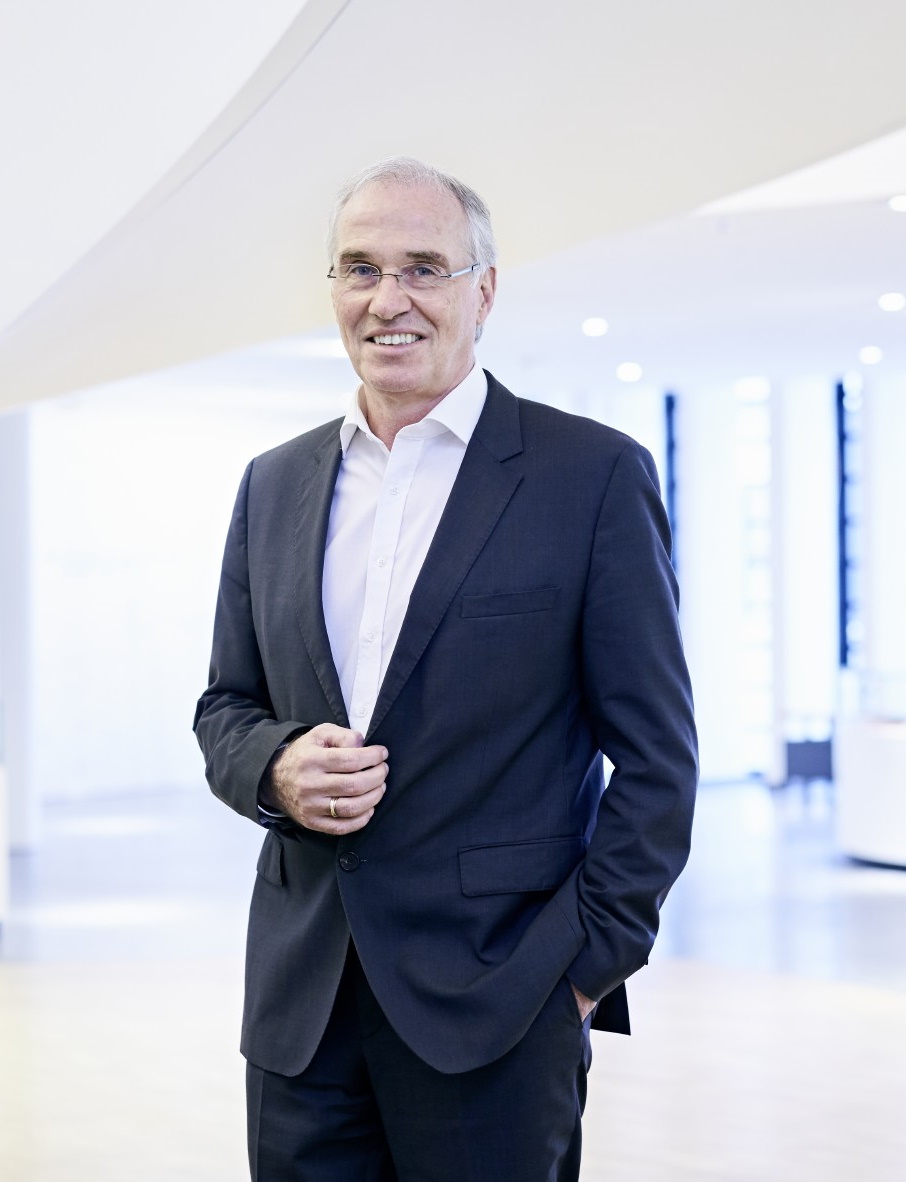
Helmut Dosch
Chairman of the DESY Board of DirectorsHelmut Dosch, born in 1955, is a solid-state physicist and Chairman of the Directorate of the Deutsches Elektronen-Synchrotron (DESY) in Hamburg. After studying and obtaining his doctorate in physics in Munich and working at Cornell University and the University of Wuppertal, among other places, he was Director at the Max Planck Institute for Metals Research in Stuttgart before moving to Hamburg in 2009. He is an expert in the use of synchrotron radiation for researching surface and interface phenomena. Dosch became internationally known for his pioneering work in the field of phase transitions at surfaces, especially for his work on the surface melting of ice and on critical phenomena at alloy interfaces. Dosch received several awards for his research work, including the Röntgen plaque of the city of Remscheid. Helmut Dosch is a member of the National Academy of Sciences Leopoldina, the German Physical Society (DPG), the European Physical Society (EPS) and the International Union of Pure and Applied Chemistry (IUPAC). He also serves as an advisor to the Board of Governors, Argonne National Laboratory, University of Chicago and BESAC Committee of the Department of Energy (DOE) Washington, among others. Prof. Dosch is Vice President of the Helmholtz Association for the Research Field Matter.
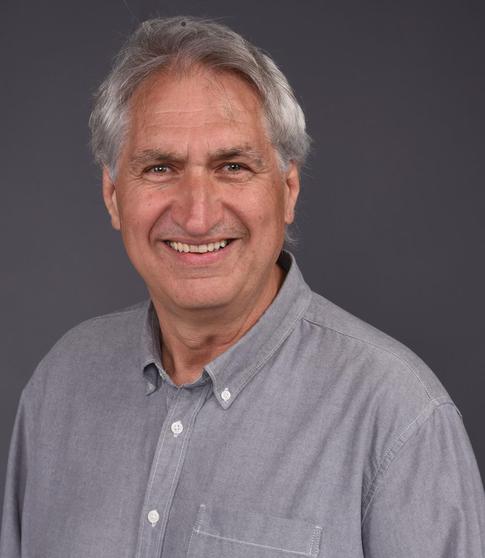
Thomas Feurer
Managing Director, European XFEL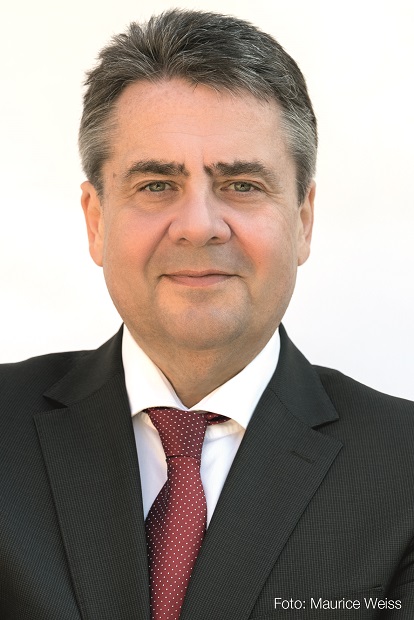
Sigmar Gabriel
Former Federal Minister for Foreign Affairs, Germany & Chair of the Atlantik-Brücke
Leonida Gizzi
Research Director, Consiglio Nazionale delle Ricerche (CNR)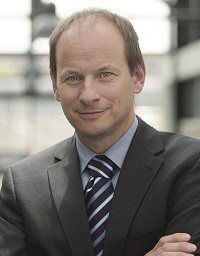
Constantin Häfner
Executive Vice President for Research and Transfer, Fraunhofer Society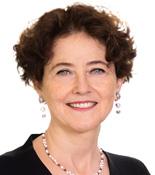
Edith Heard
Director-General, European Molecular Biology LaboratoryProfessor Edith Heard obtained her PhD from
the Imperial Cancer Research Fund
(later Cancer Research UK), London. Thereafter, she spent nine years
at the Institut
Pasteur in Paris, before undertaking a one-year sabbatical at Cold
Spring Harbor in the
USA. In 2001, she set up her group at the Institut Curie and in 2010
she became Director
of the Institute’s Genetics and Developmental Biology Unit. Edith was
appointed as a
Professor of the Collège de France in 2012, holding the Chair of
Epigenetics and
Cellular Memory. Since January 2019, Edith has been Director General
of EMBL.
Edith’s laboratory focuses on understanding how chromatin and
chromosome organisation
participate in gene regulation in development and disease. Her group
was among the first
to show that the epigenetic process of X-chromosome inactivation
(XCI), whereby one of a
female’s two X chromosomes is silenced during development, is
remarkably dynamic. Her
lab has worked out many of the molecular mechanisms underlying
X-chromosome inactivation
and she uses this model to explore fundamental principles of gene
regulation, chromatin
and epigenetic processes in general. Edith’s group was one of the
first to uncover the
epigenetic dynamics of XCI during mammalian development and they have
provided insights
into the regulation and molecular action of the Xist non-coding RNA
that triggers XCI.
Edith and her laboratory have been recognised by many prizes, most
recently the
L’Oréal-UNESCO For Women in Science International Award and she is a
Fellow of the Royal
Society, an EMBO Member, and a Foreign Associate member of the
National Academy of
Sciences (US), an International Member of the National Academy of
Medicine (US), a
Member of the German National Academy of Sciences Leopoldina, a
Corresponding Member of
the Royal Academy in Denmark, an Elected Member of Académie des
Sciences, Institut de
France, and she has an Honorary Degree Doctor of Science Honoris causa
at the University
of Cambridge, an Honorary Professor Degree at the University of
Heidelberg and an
Honorary Doctor Degree at the University of Uppsala.
Edith has participated in numerous scientific boards and is currently
a member of the
Scientific Advisory Board of the Crick Institute (London, UK),
Institute Curie (Paris,
France), the Howard Hughes Medical Institute (USA), and the WHO
Science Council.
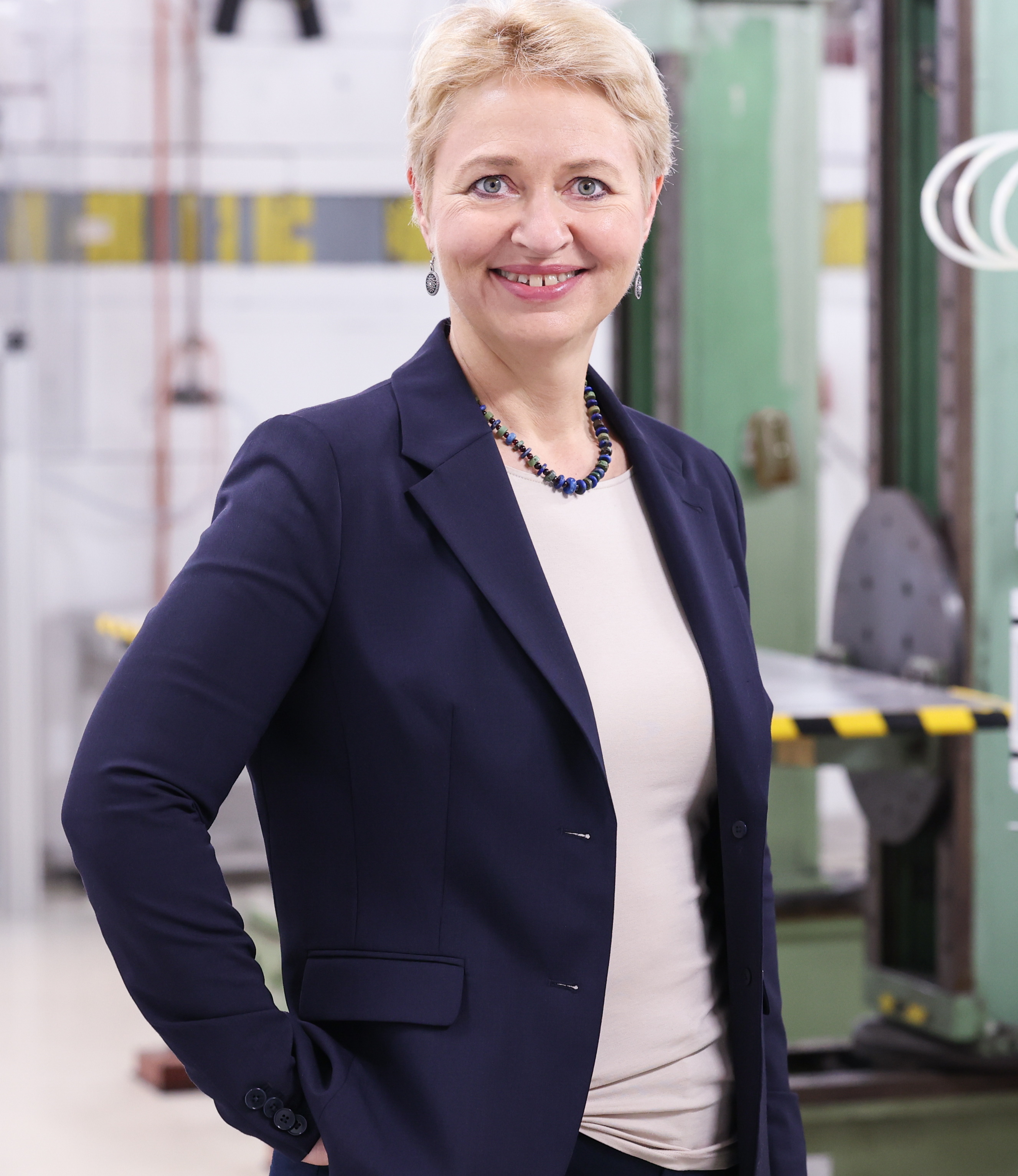
Beate Heinemann
Director of Particle Physics, DESYBeate Heinemann received her PhD at the H1 experiment at DESY's HERA accelerator and worked, among others, at the CDF experiment at Fermilab and ATLAS at the Large Hadron Collider at CERN, employed initially at the University of Liverpool (UK) and later at the University of California, Berkeley (USA). In 2017, she became a leading scientist at DESY and a professor of experimental particle physics at the Albert Ludwigs University of Freiburg. Beate Heinemann has been Director of Particle Physics since February 2022.
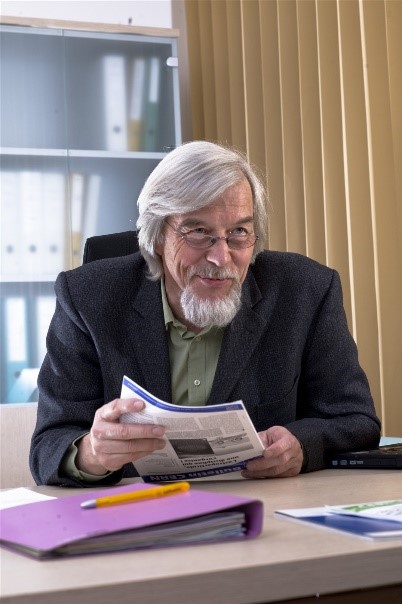
Rolf-Dieter Heuer
President of the Council of Synchrotron-light for Experimental Science and Applications in the Middle East (SESAME)Prof. Heuer is an experimental particle physicist and most of his scientific work has been related to the study of electron-positron reactions, development of experimental techniques, as well as construction and running of large detector systems. He was research scientist at the University of Heidelberg and then 15 years staff member at CERN. In 1998, he was appointed to a chair at the University of Hamburg and in December 2004, he became research director for particle and astroparticle physics at the DESY laboratory. Prof. Heuer has been CERN Director-General from January 2009 to December 2015. His mandate is characterised by the start of the Large Hadron Collider (LHC) 2009 as well as its energy increase 2015, the discovery of the H-Boson and the geographical enlargement of CERN Membership. From April 2016 to April 2018, he was President of the German Physical Society. He is President of the Council of SESAME (Synchrotron-Light for Experimental Science and Applications in the Middle East) and was the Chair of the European Commission’s Group of Chief Scientific Advisors until November 2020.

John Hill
Deputy Director for Science and Technology, Brookhaven National Laboratory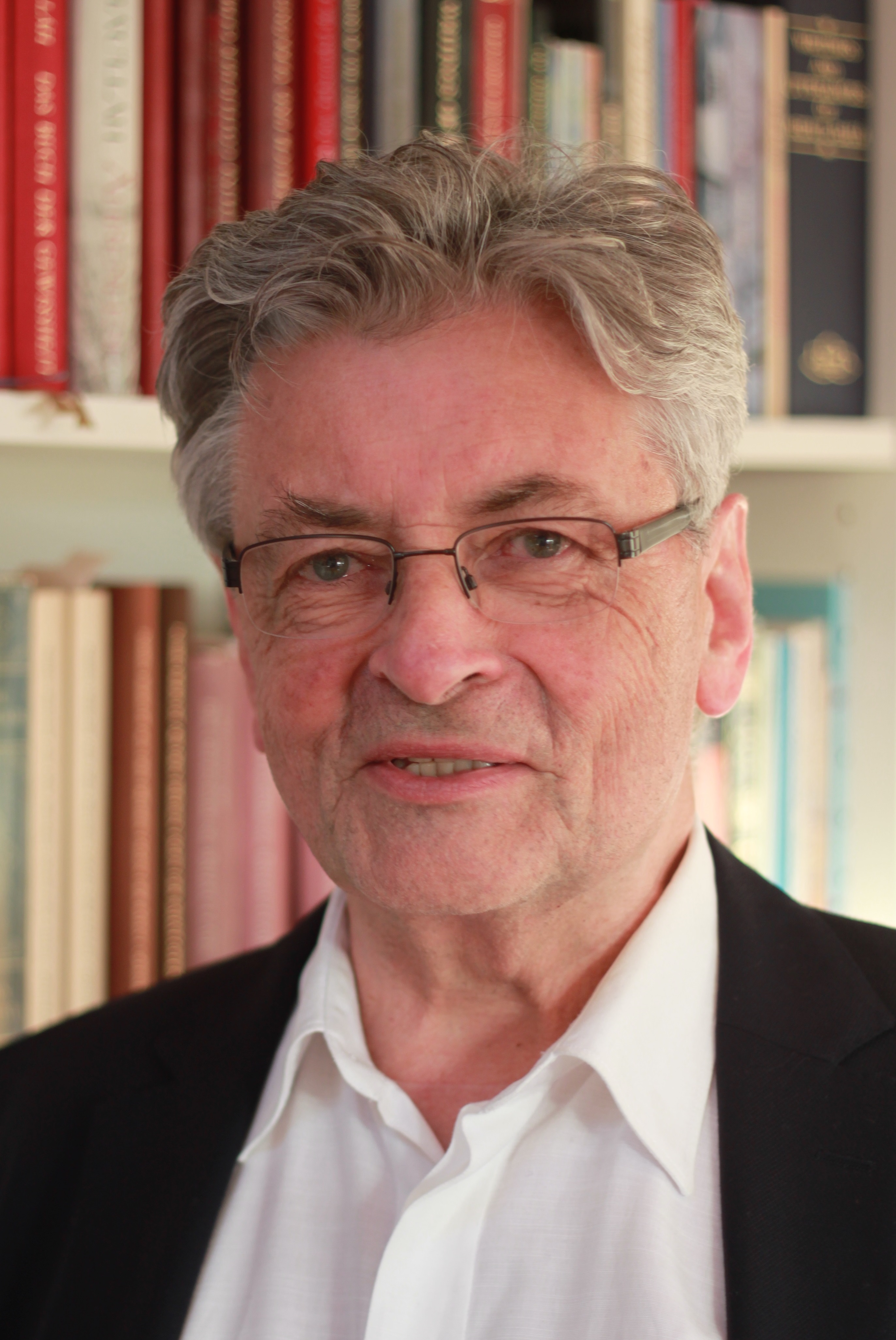
Ingo Hofmann
Former Head Accelerator Theory, GSI Helmholtz Centre for Heavy Ion Research Professor of Physics (retired), Goethe University FrankfurtInitially engaged in plasma physics at the
Max-Planck-Institute for Plasma
Physics (Garching), his later focus switched to inertial fusion using
large
particle accelerators. He was coordinator of a European Study on
"Heavy Ion
Driven Inertial Fusion (HIDIF)" (1994-98) with GSI, CERN and others,
chair
of the EURATOM "Inertial Fusion Keep-in-touch Group" (2008-13) and
chair of
the Beam Dynamics Panel of the "International Committee of Future
Accelerators" (2019-21).
Hofmann has been part of the first "IFE generation" in Germany. A few
years after
a PHD in magnetic fusion plasma physics in the IPP/Garching, started
HIF-work at LBL Berkeley. He switched
to GSI in 1983 to help build up capacity in this emerging field. GSI
phased out of it for various reasons around 2000, when another "big
science
project" - the FAIR project got initiated at GSI.
Hofmann retired in 2008, but continued part-time until
2021, initially in applying laser proton acceleration to therapy, then
continuing in high intensity beam dynamics in big accelerators.
As an accelerator physicist his ground of activity has always remained
beam
dynamics in "big science" devices, from the Oakridge SNS and European
ESS to
similar projects in China and Japan, where he had opportunities to
contribute
as a visitor
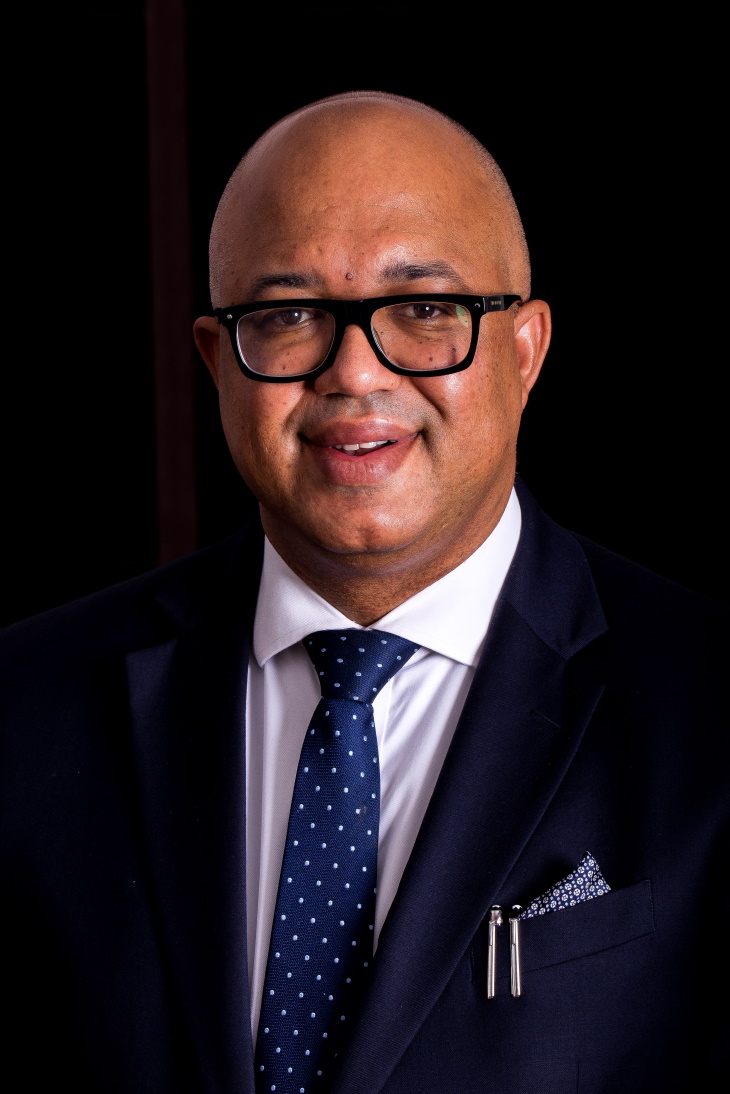
Chikwe Ihekweazu
Assistant Director-General, Division of Health Emergency Intelligence and Surveillance Systems in the Emergencies Programme, World Health Organization (WHO)Dr Chikwe Ihekweazu is Assistant
Director-General at the Health Emergencies
Programme of the World Health Organization.
Prior to this, Dr Ihekweazu was the first Director General of the
Nigeria Centre for
Disease Control (NCDC) and led the agency between July 2016 and
October 2021, where he
built up this national public health agency from a small unit to a
leading public health
agency in Africa, working closely with the Africa Centres for Disease
Control. He acted
as Interim Director of the West Africa Regional Centre for
Surveillance and Disease
Control through 2017.
Dr Ihekweazu trained as an infectious disease epidemiologist and has
worked in
leadership positions in several national public health agencies,
including NCDC, the
South African National Institute for Communicable Diseases (NICD), the
UK's Health
Protection Agency (HPA), and Germany’s Robert Koch Institute (RKI). Dr
Ihekweazu led
several short-term engagements for WHO, mainly to build surveillance
systems and in
response to major infectious disease outbreaks around the world. He
was part of the
first WHO COVID-19 international mission to China, in February 2020.
Dr Ihekweazu is a graduate of the College of Medicine, University of
Nigeria and has a
Master in Public Health (MPH) from the Heinrich-Heine University,
Dusseldorf, Germany.
In 2003, he was awarded a Fellowship for the European Programme for
Intervention
Epidemiology Training (EPIET) and subsequently completed his Public
Health
specialisation in the UK (FFPH). He has over 150 publications in
medical peer review
journals mostly focused on the epidemiology of infectious diseases.
He is the recipient of an Honorary Doctor of Science (DSc) awarded by
the Liverpool
School of Tropical Medicine, UK, the National Productivity Order of
Merit (NPOM) of the
Order of the Niger (OON) awarded by the President of the Federal
Republic of Nigeria,
for his service to Nigeria.
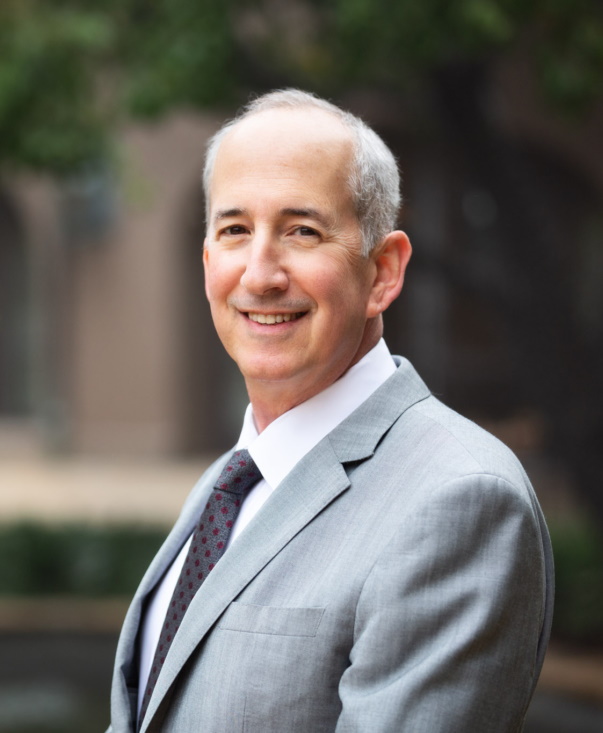
Eric D. Isaacs
President, Carnegie Institution for Science
Eric D. Isaacs is a condensed matter physicist and the 11th president
of the Carnegie
Institution for Science, a private, nonprofit research organization
headquartered in
Washington, D.C. As president of Carnegie Science, Dr. Isaacs leads
the Institution’s
investigators in forefront research in plant biology, developmental
biology, Earth and
planetary sciences, astronomy, and global ecology.
Dr. Isaacs came to Carnegie from the University of Chicago, where he
served as the
Robert A. Millikan Distinguished Service Professor in Physics and
Executive Vice
President for Research, Innovation and National Laboratories. In that
role, he provided
direct oversight of Argonne National Laboratory and Fermilab for the
U.S. Department of
Energy’s Office of Science. He also led the University’s
founding-partner relationship
with the Giant Magellan Telescope project. He previously served as
ssProvost of the
University of Chicago.
Dr. Isaacs spent five years as Director of Argonne, one of the
nation's largest science
and engineering research centers. As Argonne’s Director, Dr. Isaacs
earned a reputation
as a nationally recognized institutional strategist and advocate for
scientific research
and its importance in driving the U.S. economy. He joined the
University and Argonne in
2003 as the founding director of the Center for Nanoscale Materials,
where researchers
study and create materials at the atomic and molecular scales.
He began his career as a postdoctoral fellow at Bell Laboratories,
where he went on to
serve as director of the semiconductor physics research and materials
physics research
departments.
Dr. Isaacs holds a Ph.D. in physics from the Massachusetts Institute
of Technology and a
bachelor's degree from Beloit College. He is a fellow of the American
Physical Society
and of the National Academy of Inventors. He has authored or
co-authored more than 100
scholarly publications.
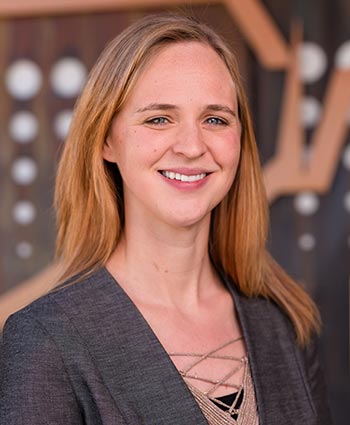
Katherine Jungjohann
Group Research Manager III-Materials Science, The National Renewable Energy Laboratory (NREL)Katherine Jungjohann is a group manager at NREL. She joined NREL in 2021, after starting her career within the U.S. Department of Energy’s Nanoscale Science Research Centers, including the Center for Integrated Nanotechnologies and the Center for Functional Nanomaterials. Her research began with liquid-cell scanning/transmission electron microscopy (S/TEM) of nanoparticle synthesis and catalytic nanoparticles. During her tenure at Sandia National Laboratories, she worked heavily on lithium metal anode characterization using in situ electrochemical S/TEM and cryogenic electron microscopy methods. In addition, she led the development of a microelectromechanical system (MEMS) device fabrication to advance in situ S/TEM capabilities, which resulted in a patent. Jungjohann has supported research on an array of user projects that required in situ S/TEM (electrical biasing, electrochemistry, heating, heating in liquids, and cryogenic, straining, and environmental TEM). She now supports her group’s role in providing advanced analytical microscopy and imaging characterization to NREL and NREL’s collaborators.

Rebecca Spyke Keiser
Chief of Research Security Strategy and Policy, National Science Foundation (NSF)
Dr. Rebecca Spyke Keiser is the Chief of Research Security Strategy
and Policy (CRSSP)
at the National Science Foundation (NSF).
Keiser is the first CRSSP, a position established in March 2020 to
ensure the security
of federally funded research while maintaining open international
collaboration. In this
role, Keiser provides the NSF director with policy advice on all
aspects of research
security strategy. She also leads NSF’s efforts to
develop and implement efforts to improve research security and the
agency’s coordination
with other federal agencies and the White House.
Until March 2020, Keiser was the head of the Office of International
Science &
Engineering (OISE) at NSF. Keiser had served as head of OISE since
coming to NSF in
2015. The office promotes an integrated, international strategy and
manages internally
focused programs that are innovative, catalytic and responsive to a
broad range of NSF
and national interests.
Prior to NSF, she was a special advisor to the National Aeronautics
and Space
Administration (NASA) administrator and an executive-in-residence at
American
University. She held several positions with NASA, including associate
deputy
administrator for strategy and policy, associate deputy administrator
for policy
integration, and executive officer to the deputy administrator.
Keiser also served as assistant to the director for international
relations at the White
House Office of Science and Technology Policy, where she provided
policy guidance to the
president's science advisor. Her experience covers science and
technology policy,
agreements and other cooperative
efforts. She is a board member of Women in Aerospace and a member of
the American
Academy for the Advancement of Science. She has a bachelor's degree in
Japanese studies
from Wellesley College; a master's degree in politics of the world
economy from the
London School of Economics; and a doctorate in international studies
from the University
of South Carolina. She speaks Japanese and Spanish.
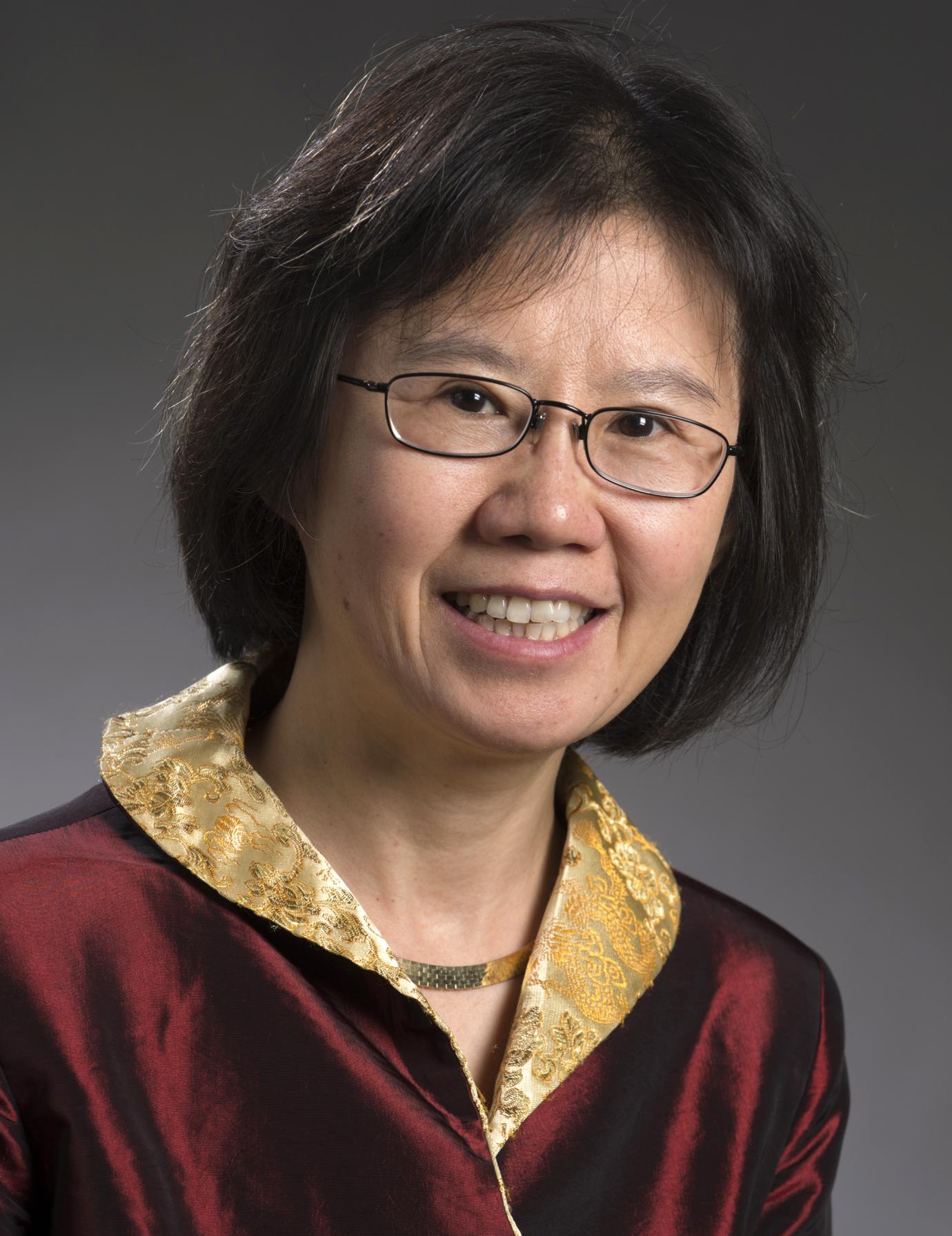
Young-Kee Kim
President, American Physical Society (APS) Louis Block Distinguished Service Professor of Physics, University of ChicagoYoung-Kee Kim, an experimental particle
physicist, is the Louis Block
Distinguished Service Professor of Physics and chair of the department
of physics at the
University of Chicago.
Young-Kee Kim is currently the APS president-elect. She served as APS
vice president in
2022.
She has devoted much of her research work to understanding the origin
of mass for
fundamental particles by studying the two most massive particles (the
W boson and the
top quark) and the Higgs particle that gives mass to elementary
particles. Between 2004
and 2006, she was the co-spokesperson (scientific leader) of the CDF
experiment at
Fermilab’s Tevatron, a collaboration with more than 600 physicists
from around the
world. Between 2006 and 2013, she was deputy director of Fermi
National Accelerator
Laboratory (Fermilab). She is currently working on the ATLAS
experiment at the LHC at
CERN. She devotes some of her time on accelerator physics and in
educating the next
generation of accelerator physicists. She has served on numerous
national and
international advisory committees, councils and boards.
Kim was born in South Korea and earned her B.S. and M.S. in physics
from Korea
University, in 1984 and 1986, respectively, and her Ph.D. in Physics
from the University
of Rochester in 1990. Her postdoctoral research was done at Lawrence
Berkeley National
Laboratory. She was an assistant, associate and full professor of
physics at University
of California, Berkeley. In 2003, she moved to the University of
Chicago.
She is a fellow of the American Academy of Arts and Sciences, the
American Physical
Society, the American Association for the Advancement of Science and
the Sloan
Foundation. She received the Ho-Am Prize, the Women in Science
Leadership Award from the
Chicago Council of Science and Technology, South Korea’s Science and
Education Service
Medal, the University of Rochester’s Distinguished Scholar Medal and
Korea University’s
Alumni Award.
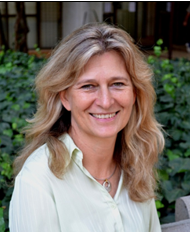
Lise Korsten
President, African Academy of Sciences (AAS)Prof. Lise Korsten is currently the
Co-Director within the Department of Science
and Innovation (DSI), National Research Foundation (NRF) Centre of
Excellence Food
Security in Pretoria, South Africa. She is responsible for the food
safety research
program within the Centre. Prof. Korsten has focused her research
mainly on
complementary fields of postharvest pathology, plant health and food
safety as related
to fresh produce, market access and international trade. Prof. Korsten
has addressed the
South African Parliament on the development of a national food safety
authority and has
developed a national food control framework and country profile to
enhance regulation
and control.
She has trained 87 MSc and PhD and 60 BSc Hons postgraduate students
and has published
more than 200 peer reviewed papers, chapters or books and 150 popular
papers. She
currently has an H-Index of 50 and i10-index of 154 and has been cited
10387 times and
counts within the top 2% of scientists in the specified subject field
among the
scientists in the AD Scientific Index in the World
(https://bit.ly/3iwFsio). In
recognition of some of her work she has received the Water Research
Commission: Winner
of the Human Capital Development Award in the Water and Science Sector
and the MT Steyn
prize from the South African Academy of Science. She is an elected
Fellow of the South
African Society for Plant Pathology and of the Academy of Science of
South Africa. She
is also involved in the InterAcademy Partnership (IAP) in several sub
committees i.e.,
Capacity Building, Education and Outreach. Prof. Korsten is also a
senior editor for the
Springer journal Crop Protection, an associate editor for CABI
Agriculture and
Bioscience, Frontiers Horticulture and Nature Africa.
She chairs the International Society for Plant Pathology Task Force on
Global Food
Security. Prof. Korsten was previously the Chair of the Scientific
Advisory Committee
for the African Research Initiative for Scientific Excellence (ARISE).
She is currently
the newly elected President of the African Academy of Science. Her
vision is to
transform the Academy to a more inclusive, representative, gender
balanced, globally
recognised leading academy and champion for sciences and excellence on
the continent.
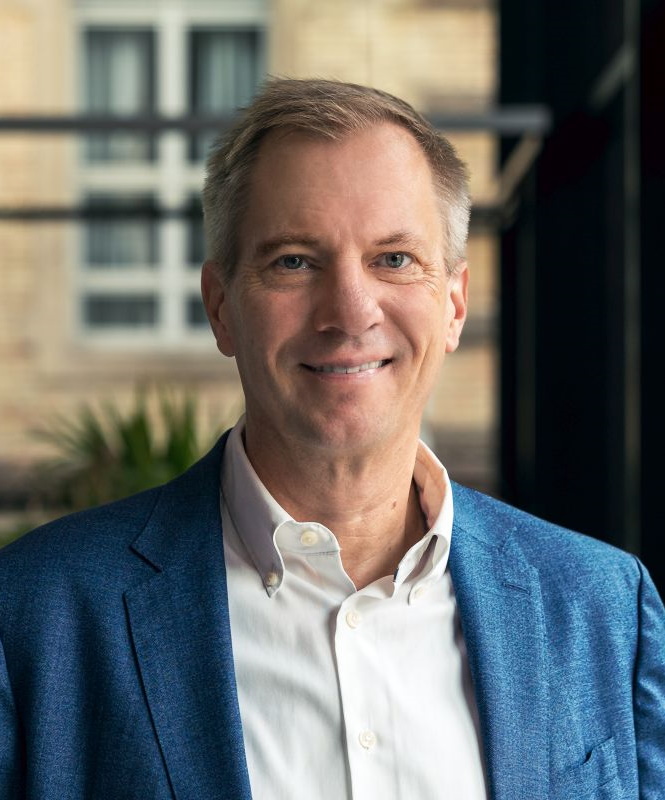
Oliver Kraft
Vice-President Research, Karlsruhe Institute of Technology (KIT) Member of the Executive Board, TU9Professor Dr. Oliver Kraft was born in
Frankfurt am Main in 1964. He studied
materials science and graduated in this discipline at the University
of Stuttgart. He
was a guest scientist at the Department of Materials Science and
Engineering of Stanford
University, USA, and worked as a group leader in the field of
“Mechanisms of Deformation
in Thin Metal Layers and Small Volumes” at the Max Planck Institute of
Metallurgy in
Stuttgart.
Since 2002 he has been Professor and Head of the current Institute of
Applied Materials
of the KIT. Kraft is the scientific co-author of more than 200
articles; between 2006
and 2011, he was the spokesman of a collaborative research center.
Between 2006 and
2009, he was Chairman and Deputy Chairman, respectively, of the
Scientific-technical
Council of the former Karlsruhe Research Center. In 2011, Kraft was
granted the
Professorship for Nanostructured Functional Materials funded by the
Bosch Group. From
2012 to 2015, he was one of the spokespersons of the Helmholtz
Programme Science and
Technology of Nanosystems (STN).
On January 01, 2016, Oliver Kraft started activity as Vice-President
Research. His
second term of office started on January 01, 2022 and will end on
December 31, 2027.

Harriet Kung
Acting Director, Office of Science, U.S. Department of EnergyDr. Harriet Kung is the Acting Director of the
Office of Science in the U.S.
Department of Energy. She also serves as the Deputy Director for
Science Programs and is
the senior career official providing scientific and management
direction and oversight
for the SC research programs, including Advanced Scientific Computing
Research, Basic
Energy Sciences, Biological and Environmental Research, Fusion Energy
Sciences, High
Energy Physics, and Nuclear Physics, as well as other supporting
functions and offices.
Dr. Kung served in various leadership roles in Basic Energy Sciences,
the largest
program in the Office of Science, from 2002 - 2020. Before joining DOE
in 2002, Dr. Kung
was a technical staff member and a project leader at Los Alamos
National Laboratory. Her
research focused primarily on nanoscale materials and high temperature
superconductivity.
With over 20 years of service in the Department of Energy, Dr. Kung
led and cultivated
one of the Nation’s premier physical sciences programs. During her
tenure, she developed
a new basic research paradigm in team-science approach to advance
DOE’s science and
energy missions by spearheading a decade-long strategic planning
initiative to assure
timely, science-based solutions. She also positioned the Office of
Science as a National
Quantum Initiative leader by establishing strategies to capitalize on
strong synergy
between disciplines such as physics, biology, materials, and
engineering, as well as the
world-leading scientific user facilities. She has chaired and
co-chaired high-level
interagency working groups to develop and implement national science
priorities.
Dr. Kung received her M.S. and Ph.D. degrees from Cornell University.
She is the
recipient of numerous awards including the Presidential Meritorious
Executive Rank Award
in 2009 and the Distinguished Executive Rank Award in
2022.

Thomas Mason
Director, Los Alamos National Laboratory President and CEO, Triad National Security, LLC
Thomas (Thom) Mason is the President and CEO of Triad National
Security, LLC (Triad) and
serves as the Director of Los Alamos National Laboratory.
Most recently he was the Senior Vice President for Global Laboratory
Operations at
Battelle where he had responsibility for governance and strategy
across the six National
Laboratories that Battelle manages or co-manages.
Prior to joining Battelle, Thom worked at Oak Ridge National
Laboratory (ORNL) for 19
years, including 10 years as the Laboratory Director. Under his
leadership, ORNL saw
significant growth in programs, new facilities, and hiring while
achieving record low
safety incident rates.
Before becoming Laboratory Director, he was Associate Laboratory
Director (ALD) for
Neutron Sciences, ALD for the Spallation Neutron Source (SNS), and
Director of the
Experimental Facilities Division.
During his time in Oak Ridge, Thom was active in the community serving
as Chair of the
Oak Ridge Public Schools Education Foundation as well as Innovation
Valley, the
Knoxville-Oak Ridge area regional economic development organization.
He moved to ORNL from the University of Toronto where he was a faculty
member in the
Department of Physics and previously worked as a Senior Scientist at
Risø National
Laboratory and a Postdoc at AT&T Bell Laboratories.
For the past 30 years, he has been involved in the design and
construction of scientific
instrumentation and facilities and the application of nuclear,
computing, and materials
sciences to solve important challenges in energy and national
security.
Thom has a Ph.D. in Experimental Condensed Matter Physics from
McMaster University and a
BSc in Physics from Dalhousie University.
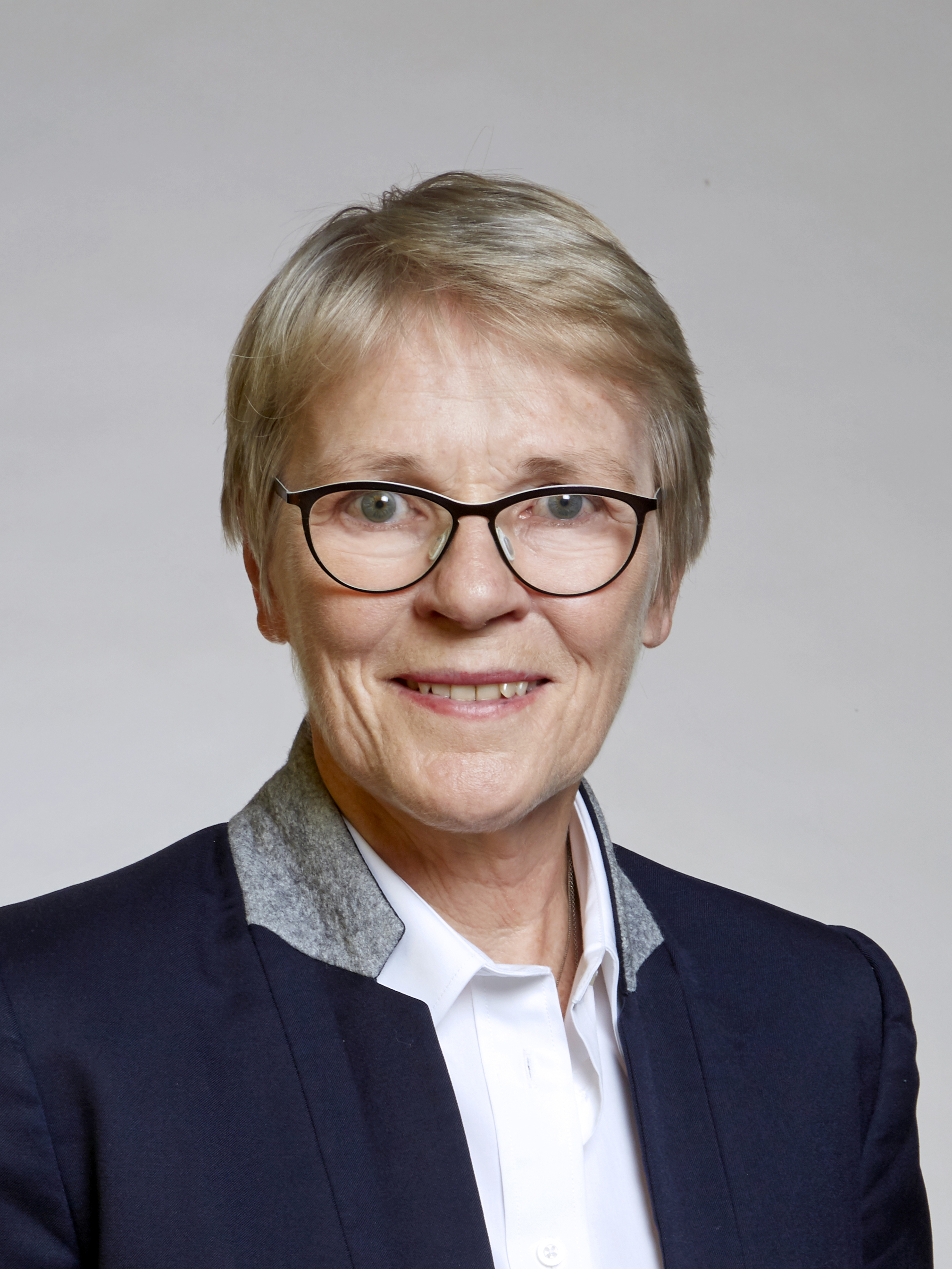
Julie Maxton DBE
Executive Director, The Royal SocietyDame Julie Maxton is the Executive Director of
the Royal Society, the first woman
in 350 years to hold the post. Before taking up her position at the
Royal Society in
2011 Julie was Registrar at the University of Oxford, the first woman
in 550 years in
the role.
She is an Honorary Fellow of University College Oxford, a Bencher of
the Middle Temple
and a Freeman of the Goldsmith’s Company. She is Chair of the Ada
Lovelace Institute and
of the Kalisher Trust. In the past she has also been on the Boards of
the Alan Turing
Institute, Blavatnik School of Government in Oxford, Haberdasher
Aske’s School
(Elstree), Engineering UK, Charities Aid Foundation, The Faraday
Institute and Sense
about Science.
Originally trained as a barrister at the Middle Temple, Julie combined
a career as a
practising lawyer with that of an academic, holding a number of senior
academic
positions, including those of Deputy Vice Chancellor, Professor and
Dean of the Faculty
of Law at the University of Auckland, New Zealand. Academic and other
recognition Julie
has received include a CBE (2017), a DBE (2023), and Honorary Degrees
from the
Universities of Huddersfield, Warwick, Canterbury, Hull, Bristol and
Brunel. She is the
author of numerous articles concerned with trusts, equity, commercial
and property law.
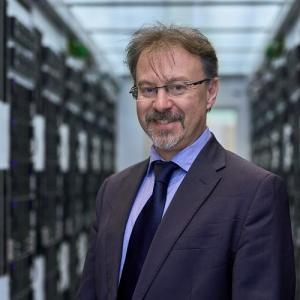
Alberto Di Meglio
Head of IT Innovation, CERNAlberto Di Meglio is Head of Innovation in the IT Department at CERN, Coordinator of the CERN Next Generation Triggers project, former Coordinator of the CERN Quantum Technology Initiative, and former Head of CERN openlab. Alberto is an Aerospace Engineer (MEng) and Electronic Engineer (PhD). He joined CERN in 1998 and took part since its early stages in the development of the worldwide High-Energy Physics computing infrastructure. Alberto has designed and led the CERN Quantum Technology Initiative from 2021 to 2023, a programme to define and implement collaborative R&D projects between CERN, academia, and industry on quantum computing and technologies for fundamental research applications.
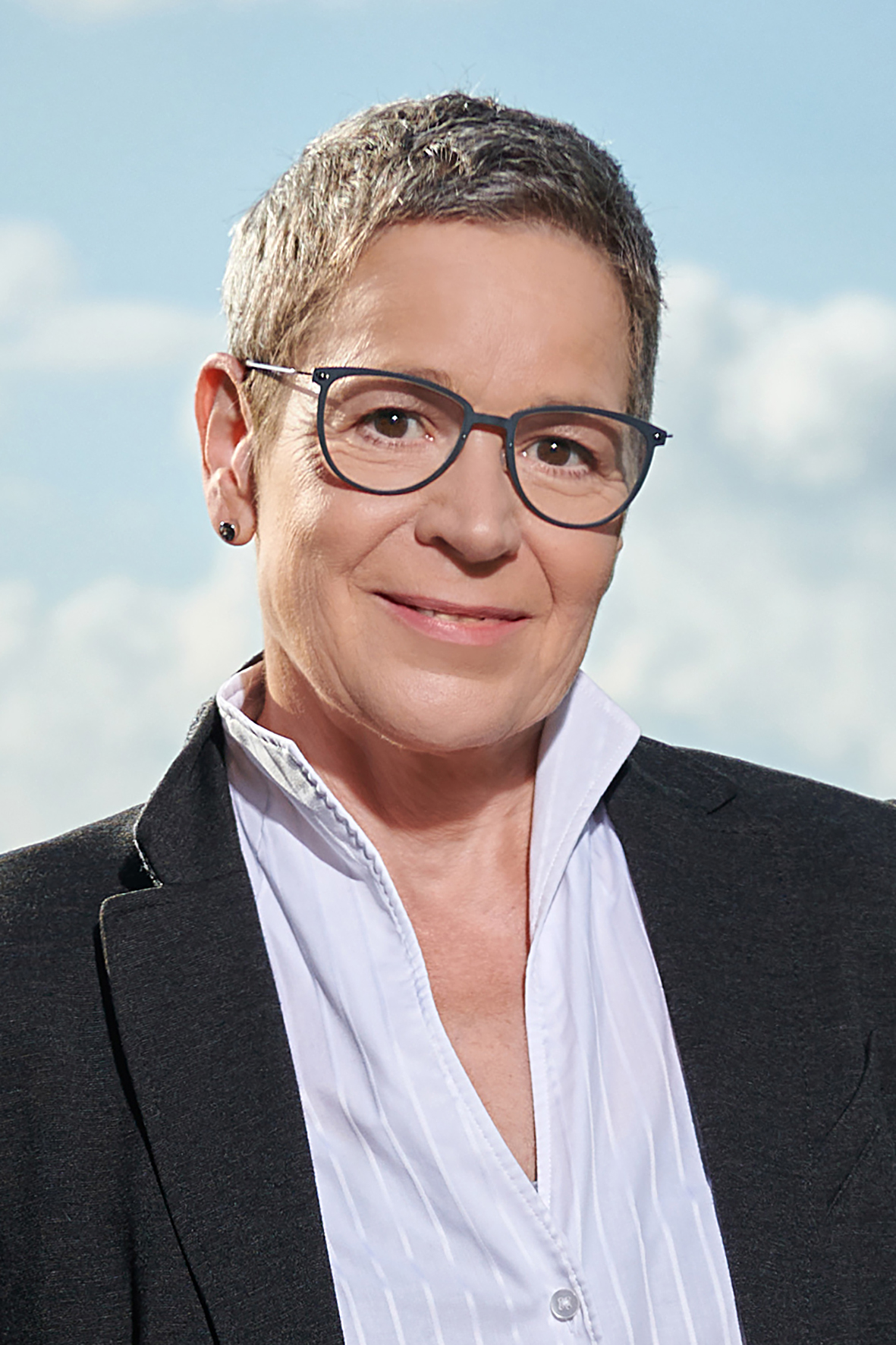
Simone Menne
President, American Chamber of Commerce in Germany
At the Annual Membership Meeting of AmCham Germany on June 25, 2021,
Simone Menne was
elected as President of the American Chamber of Commerce in Germany
e.V. (AmCham
Germany). She was re-elected for another two-year term in early July
2023.
Simone Menne started her career for ITT Inc. and joined Deutsche
Lufthansa in 1989. At
Lufthansa, she held several positions and was appointed as CFO in 2012
and stayed in
this position until 2015. She also worked as CFO at Boehringer
Ingelheim from 2016 to
2017. At both companies, she was responsible for the foundation of the
digital lab.
Additionally, Ms. Menne serves as non-executive board member for
Henkel, Johnson
Controls International, Russell Reynolds, and Siemens Energy. She also
owns an art
gallery in Kiel, Germany.
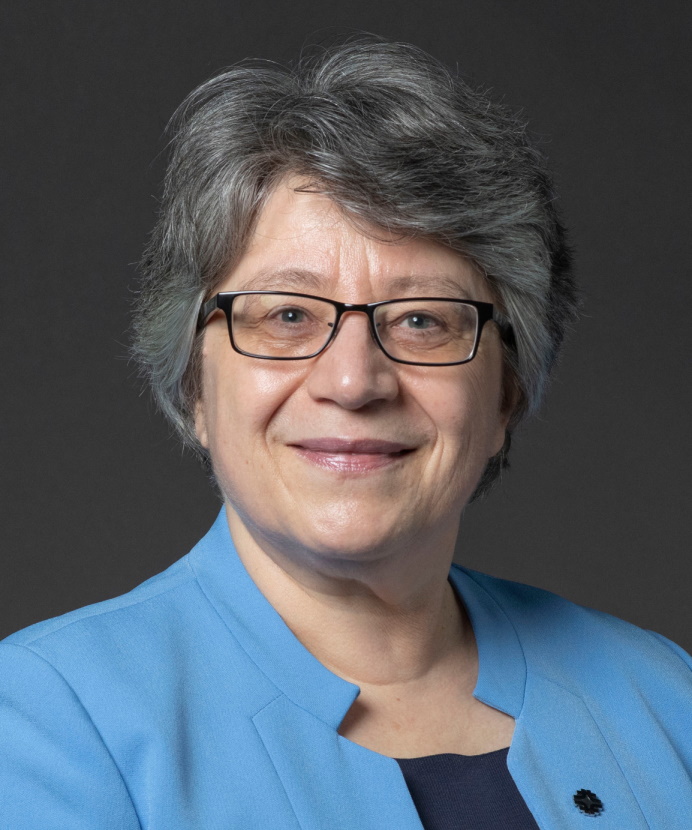
Lia Merminga
Director, Fermi National Accelerator Laboratory (FNAL)Lia Merminga began her tenure as director of Fermi National Accelerator Laboratory in April 2022. She holds overall accountability for the performance of the laboratory and fulfillment of the expectations set by the DOE and sets the overall scientific strategy for Fermilab. She represents the laboratory to external communities, and is the chief spokesperson as well as an “ambassador” for U.S. particle physics to other countries. Merminga has held major scientific leadership roles at SLAC National Accelerator Laboratory in California; TRIUMF in Vancouver, Canada; and the Thomas Jefferson National Accelerator Facility in Virginia. Merminga earned a bachelor's degree in physics from the University of Athens, in Greece, master's degrees in physics and mathematics and a Ph.D. in physics from the University of Michigan, in Ann Arbor. She is an internationally renowned accelerator physicist, a Fermilab Distinguished Scientist, a fellow of the American Physical Society, and a graduate of the Department of Energy's Oppenheimer Energy Science Leadership Program. She has served on numerous international scientific committees and was one of the authors of the 2014 Particle Physics Project Prioritization Project (P5) plan.
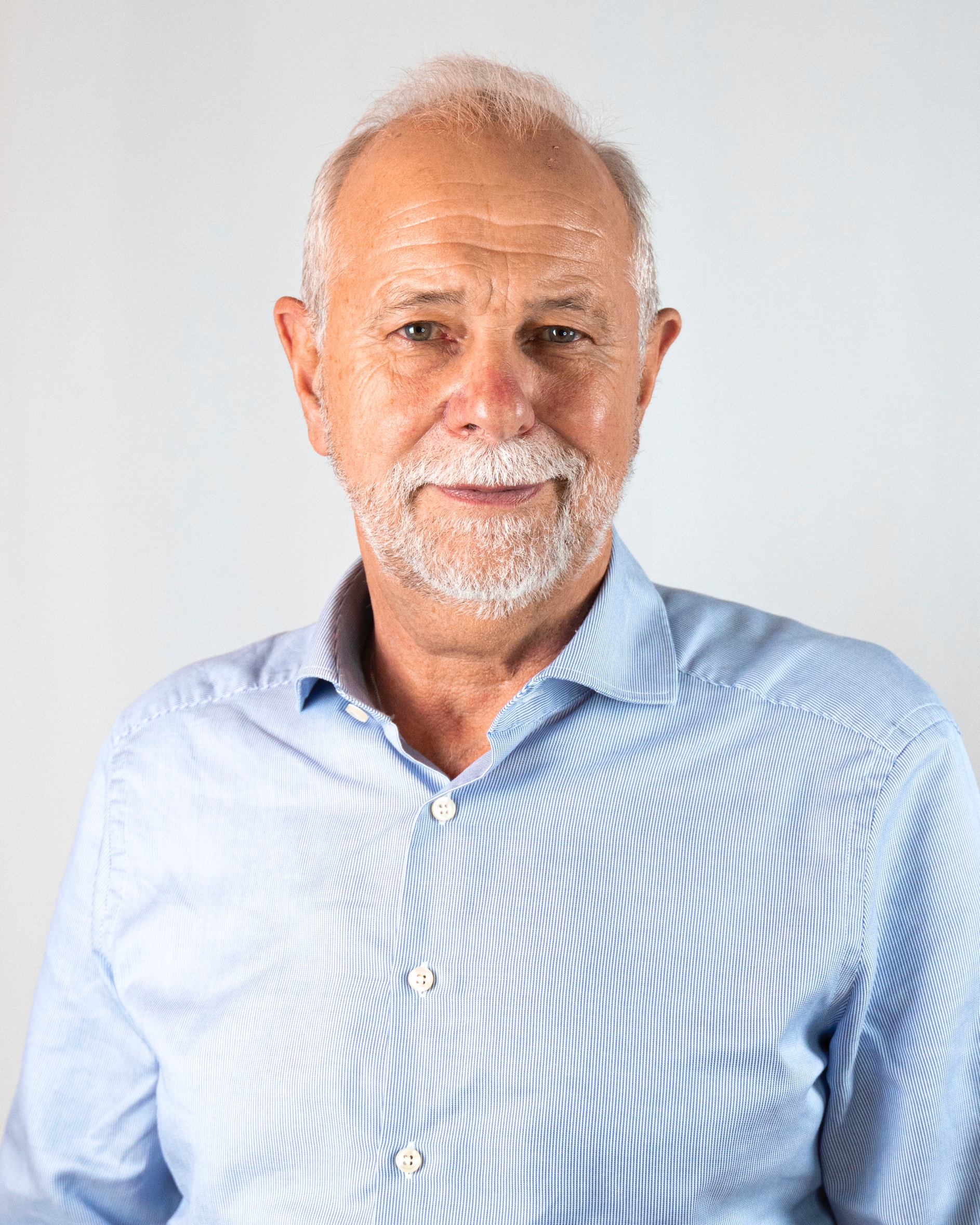
Jürgen Mlynek
Chairman of the Board of Directors, Wilhelm and Else Heraeus Foundation Chairman of the Board of Trustees, Falling Walls FoundationJürgen Mlynek studied physics in Germany and
France before he moved into research
management. Main fields at research are experimental quantum optics,
atomic physics,
surface physics. He served as Vice-President of the German Research
Foundation and later
as President of the Humboldt-Universität in Berlin. From 2005 until
2015, he has been
President of the Helmholtz Association of German Research Centres, the
largest
association of research centres in Germany. For his own research,
Mlynek was awarded the prestigious
Gottfried Wilhelm Leibniz Prize.
Among his offices are Chairman of the Board of Trustees at the Falling
Walls Foundation,
Chairman of the Foundation Board at the "Haus der kleinen Forscher",
Chairman of the
Board of Trustees at the Foundation Brandenburger Tor, board member of
the Wilhelm und Else
Heraeus Foundation, as well as member of various university and
science committees.
Furthermore, he is a board member of the Holtzbrinck publishing group,
of the company
Carl Zeiss and WISTA-Management GmbH.
In 2019 Jürgen Mlynek has been appointed as chair of the Strategic
Advisory Board (SAB)
for the Quantum Technology FET Flagship. The Strategic Advisory Board
for the Quantum
Technology Flagship has been set by the European Commission to provide
advice for
strategic decision-making to the Quantum Technology FET (Future and
Emerging Technologies)
Flagship, with a long-term impact across the whole
initiative.

Michael Moloney
CEO, American Institute of Physics (AIP)Michael H. Moloney is the ninth CEO of AIP.
Since joining AIP in early 2018, Moloney
has been leading a strategic transformation effort for the Institute
in preparation for its
centennial anniversary in 2031. At the core of the transformation is
AIP’s commitment to
supporting its Member Societies to broaden their impact and achieve
results beyond their
individual missions and mandates, and to advancing the physical
sciences at large through
independent research in social science, policy and history.
Prior to joining AIP, Moloney was the director for space and
aeronautics at the U.S. National Academies
of Sciences, Engineering and Medicine. For more than 15 years at the
Academies, he was study director
or senior staff on about 100 reports on space science, engineering and
technology, aeronautics,
materials science and engineering, and physics and astronomy.
Previously, Moloney was a foreign service officer for the Irish
government for seven years.
An experimental physicist by training, Moloney holds a doctorate from
Trinity College Dublin,
in Ireland. His undergraduate degree in experimental physics is from
University College Dublin—where,
on graduation, he was awarded the Nevin Medal for Physics.
Moloney is a member of the International Academy of Astronautics, an
associate fellow of the
American Institute of Aeronautics and Astronautics, a fellow of the
American Physical Society
and a fellow of the London-based Institute of Physics. He is a member
of the Board of Directors
of the Center for the Advancement of Science in Space (CASIS), the
organization that manages the
International Space Station (ISS) US National Laboratory. He also sits
on the Science, Technology Assessment
and Analytics (STAA) Inaugural Polaris Council at the U.S. Government
Accountability Office.
Moloney is a recipient of a distinguished service award from the
National Academies of Sciences,
Engineering and Medicine.
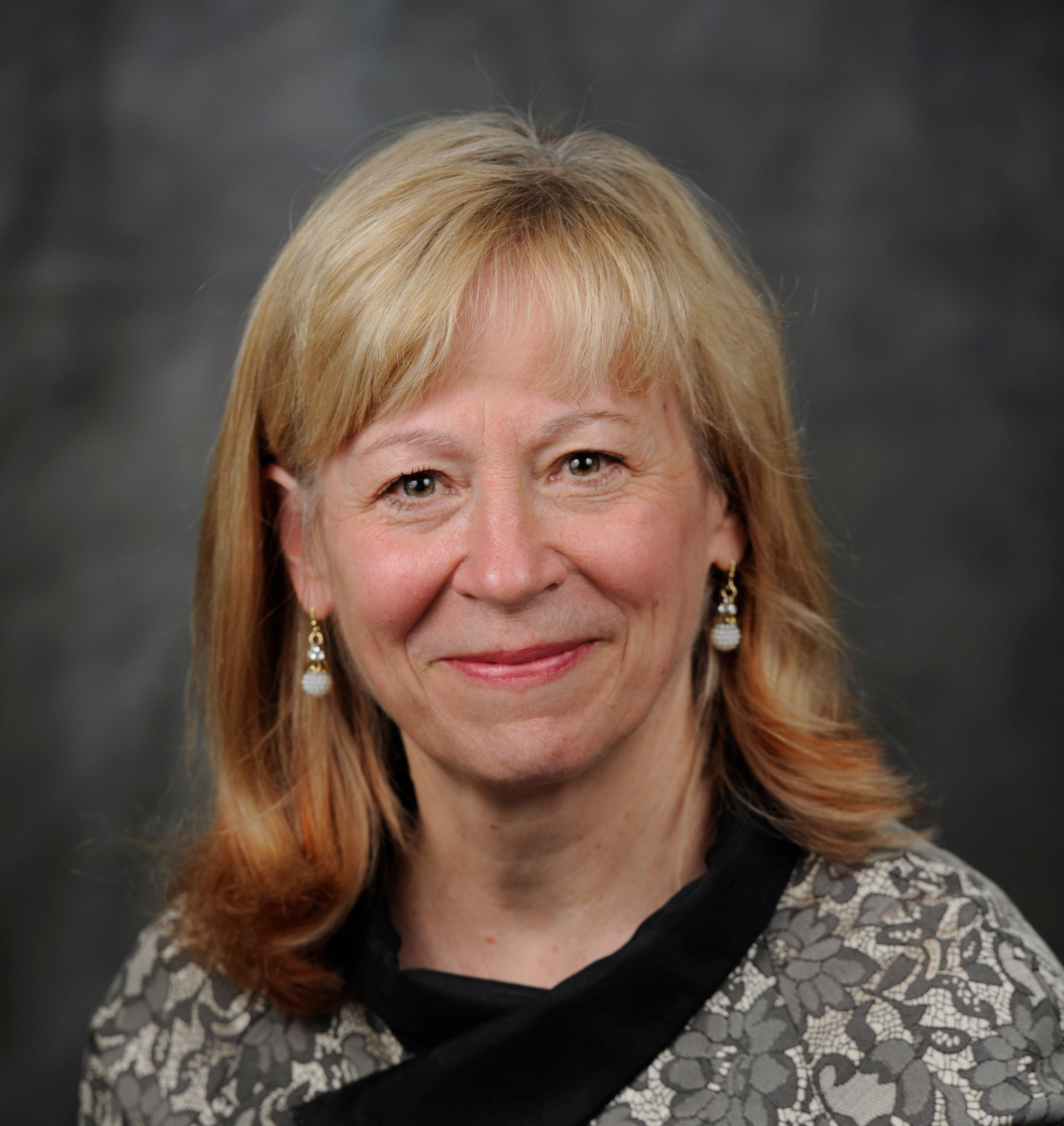
Geraldine Richmond
Under Secretary for Science and Innovation, U.S. Department of Energy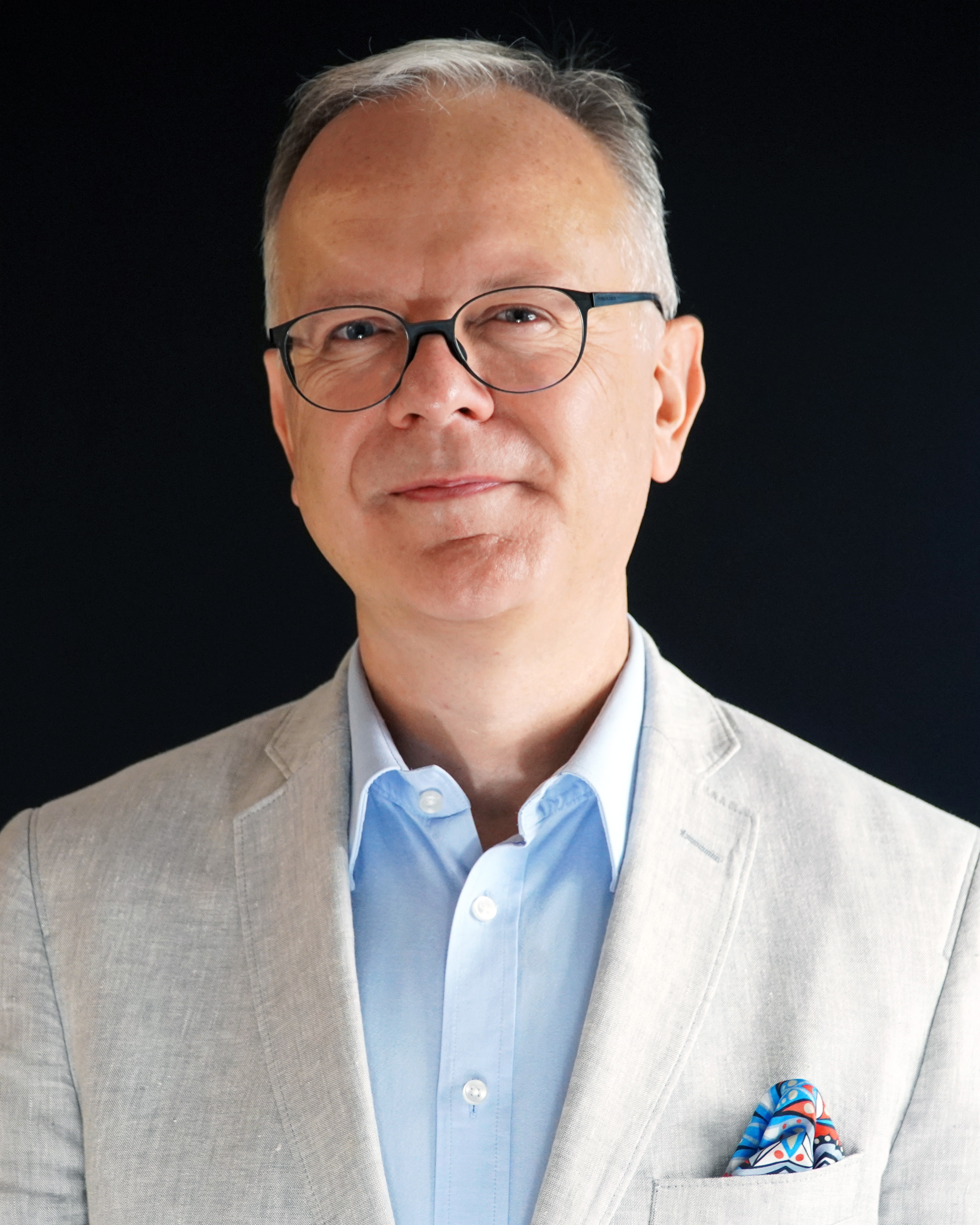
Paweł Rowiński
President of ALLEA, the European Federation of Academies of Sciences and Humanities President, Institute of Geophysics, Polish Academy of SciencesPaweł Rowiński is a professor in Earth sciences at the Institute of Geophysics, Polish Academy of Sciences. His research interests include mathematical methods in geophysics, environmental hydrodynamics and experimental studies of hydrological processes. He is Editor in Chief of Springer book series GeoPlanet and he serves as Associate Editor for several prominent scientific journals and publications. He is the Chair of the Europe Division Leadership Team of the International Association for Hydro-Environment Engineering and Research IAHR. Earlier he served as its Vice Chair. Since June 2024, he assumes the role of President of the European Federation of Academies of Sciences and Humanities (ALLEA) and he is a board member of SAPEA - Science Advice for Policy by European Academies. He served as Vice-President of the Polish Academy of Sciences (2015-2022). Starting from the 1st of September of 2023 he is the director of the Institute of Geophysics, PAS; he also served as its director from 2008 to 2015.
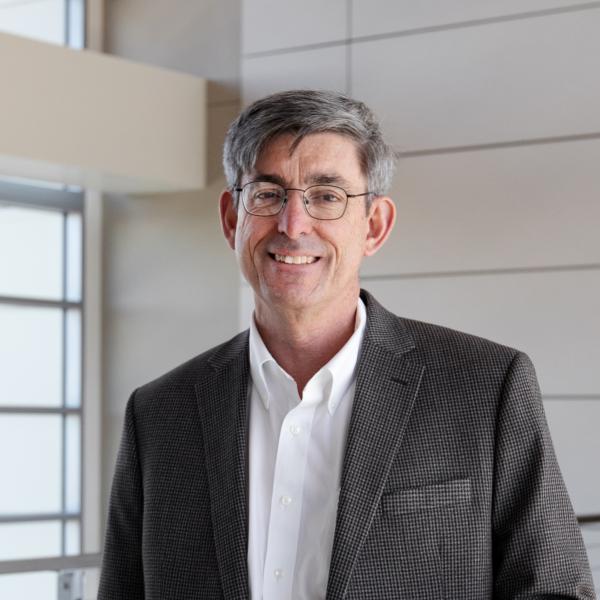
John Sarrao
Director, SLAC National Accelerator LaboratoryJohn Sarrao became SLAC National Accelerator
Laboratory’s sixth director in
October 2023. The lab’s ~2,000 staff advance the frontiers of science
by exploring how
the universe works at the biggest, smallest, and fastest scales and
invent powerful
tools used by scientists around the globe. SLAC’s research helps solve
real-world
problems and advances the interests of the nation. SLAC is operated by
Stanford
University for the U.S. Department of Energy’s Office of Science. It
is home to three
Office of Science national user facilities: the Linac Coherent Light
Source (LCLS), the
world’s most powerful X-ray laser; the Stanford Synchrotron Radiation
Lightsource
(SSRL); and the Facility for Advanced Accelerator Experimental Tests,
(FACET-II). SLAC
hosts thousands of users each year and manages an annual budget of
~$700M. In addition
to his role as lab director, John is a professor of photon science at
Stanford
University, a senior fellow at Stanford’s Precourt Institute, and dean
of SLAC faculty.
John came to SLAC from Los Alamos National Laboratory (LANL) in New
Mexico, where he
served as the deputy director for science, technology, and
engineering. In that role, he
led multiple directorates, including chemistry, earth and life
sciences, global
security, physical sciences, and simulation and computation. He also
stewarded
technology transitions and served as LANL’s chief research officer in
support of its
national security mission. Before becoming deputy director, he served
as associate
director for theory, simulation, and computation and division leader
for materials
physics and applications at LANL.
John’s scientific research focus is superconductivity in materials. He
studies the
synthesis and characterization of correlated electron systems,
especially actinide
materials. He won the 2013 Department of Energy’s E.O. Lawrence Award
and is a fellow of
the American Association for the Advancement of Science, the American
Physical Society,
and LANL. John received his PhD and master’s degree in physics from
the University of
California, Los Angeles, and a bachelor’s degree in physics from
Stanford University.
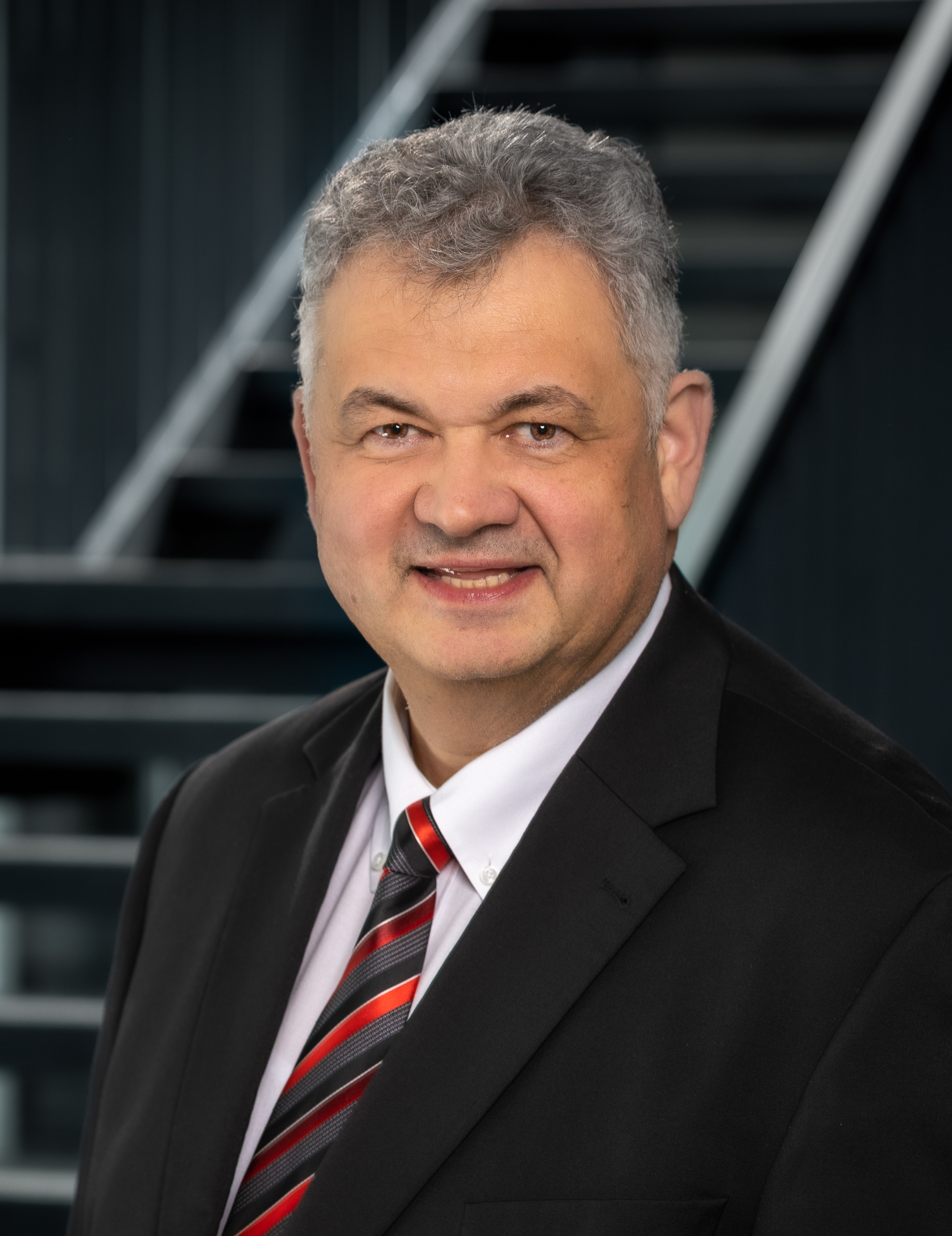
Sebastian Schmidt
Scientific Director, Helmholtz-Zentrum Dresden-Rossendorf (HZDR)Prof. Dr. Dr. hc. mult. Sebastian M. Schmidt,
born in 1967, grew up in Greifswald
and started his scientific career at the University of Rostock and at
the Joint
Institute for Nuclear Research in Dubna. He completed his doctorate in
theoretical
physics in Rostock in 1995. After a scholarship at Tel Aviv University
and as a fellow
of the Alexander von Humboldt Foundation at Argonne National
Laboratory (USA), he took
over the leadership of an Emmy Noether junior research group sponsored
by the German
Research Foundation (DFG), at the Eberhard Karls University of
Tübingen in 2000. In
2001, he completed his habilitation at the Universities of Tübingen
and Rostock. From
2002 to 2006, Sebastian M. Schmidt was first a staff member, then
managing director of
the Helmholtz Association's office in Berlin. From 2007 to 2020, he
served as a member
of the Board of Directors at the Forschungszentrum Jülich for the
areas of matter and
information. Since 2012 he holds a professorship for physics at RWTH
Aachen University.
As of October 2023 Sebastian M. Schmidt was elected to the National
Academy of Science
and Engineering - acatech.
Prof. Sebastian M. Schmidt has been Scientific Director at the
Helmholtz-Zentrum
Dresden-Rossendorf since April 1, 2020.
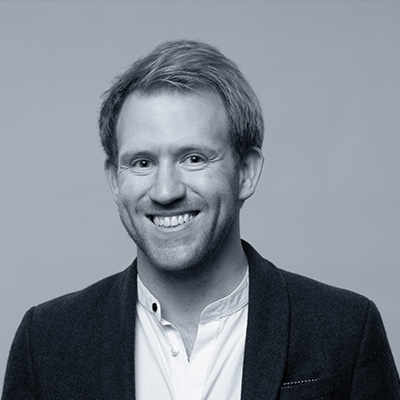
Joseph Simmonds-Issler
Chief of Staff, Coalition for Epidemic Preparedness Innovations (CEPI)Joe Simmonds-Issler is the Chief of Staff, and
Executive Director for the
Governance, Strategy and Portfolio division, at CEPI.
Joe joined CEPI in 2017 as Chief of Staff and has played a key role in
the evolution of
CEPI as it has grown from 20 to more than 280 members of staff. Joe
acted as incident
response lead for CEPI during the 2019 Ebola outbreak in DRC and
played a major role in
CEPI’s response to COVID-19. This included supporting CEPI’s early
fundraising and
designing rapid governance processes. He was instrumental to the
development and running
of COVAX.
In 2021, Joe also took on leading the strategy, portfolio management,
CEO office, and
governance teams. Joe oversees central strategic functions that help
drive progress and
direction towards CEPI’s mission, analysis and learning, and effective
decision-making.
Joe acts as strategic lead on governance.
In 2023, Joe secured funding from the Government of Canada to enable
CEPI to define its
role in the biosecurity space as a core part of CEPI’s strategy.
Biosecurity is also a
critical part of the 100 Day Mission, which aims to respond to the
next Disease X threat
in with a new vaccine in just three months.
Before CEPI Joe worked at Wellcome working on governance and on the
development of a new
strategy, completed an Emerging Leaders in Biosecurity Fellowship
(Johns Hopkins
University), and studied War Studies and History at Kings College
London (UK).
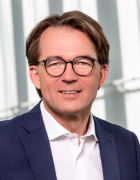
Matthias Tschöp
CEO, Helmholtz Munich Vice President, Helmholtz AssociationMatthias H. Tschöp is the CEO and Spokesperson
for the Management at Helmholtz
Munich since 2018 and ‘Alexander von Humboldt’ Professor at the
Technical University of
Munich since 2012. His vision is to position the region Munich as a
world leading hub
for biomedical research in order to efficiently find new solutions to
the health
challenges facing our rapidly changing world. He is realizing this by
advancing
excellence in basic biomedical research and accelerates its
translation into
personalized prevention and new precision therapies.
Matthias Tschöp (*1967), the physician, scientist and science manager,
has made
pioneering discoveries in the diabetes and obesity research fields.
His achievements
include the discovery of the hunger hormone ghrelin as well as the
discovery of gut
hormone polyagonists, a group of active agents that can significantly
improve weight
reduction in obesity as well as blood sugar control in type 2
diabetes. The drug
Tirzepatide (Mounjaro), produced by Lilly, was the first polyagonist,
which was approved
for use back in May 2022 (previously in the USA) and another 10
polyagonists are on
their way to approval in clinical trials.
Born in Munich and a family man, he knows the different perspectives
between medicine
and research from his own experience: After obtaining his license to
practice medicine
from the Ludwig Maximilian University Hospital, he moved to the United
States to work in
diabetes research for a pharmaceutical company, co-founded a start-up
and headed a
research institute at the University of Cincinnati as a professor and
research director
before returning to Germany after more than ten years abroad. He
turned the Helmholtz
Diabetes Center into a world-leading research institution as its
founding director and
launched the Helmholtz Pioneer Campus before he joined the executive
board.
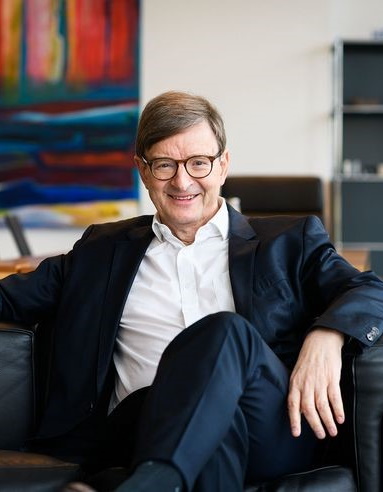
Otmar D. Wiestler
President, Helmholtz AssociationSince 2015, Otmar D. Wiestler is President of the Helmholtz Association, the largest association of research centers in Germany. A neuropathologist by profession, Professor Wiestler worked at the UC San Diego and the University Hospital Zurich in the 1980s and 90s. From 1992 to 2003, he served as chair of the Department of Neuropathology at the University of Bonn, where he also was the head of the German Brain Tumor Reference Center and Medical Director of the biomedical company Life & Brain. From 2004 to 2015, Professor Wiestler headed the German Cancer Research Center in Heidelberg as Chairman and Scientific Director.
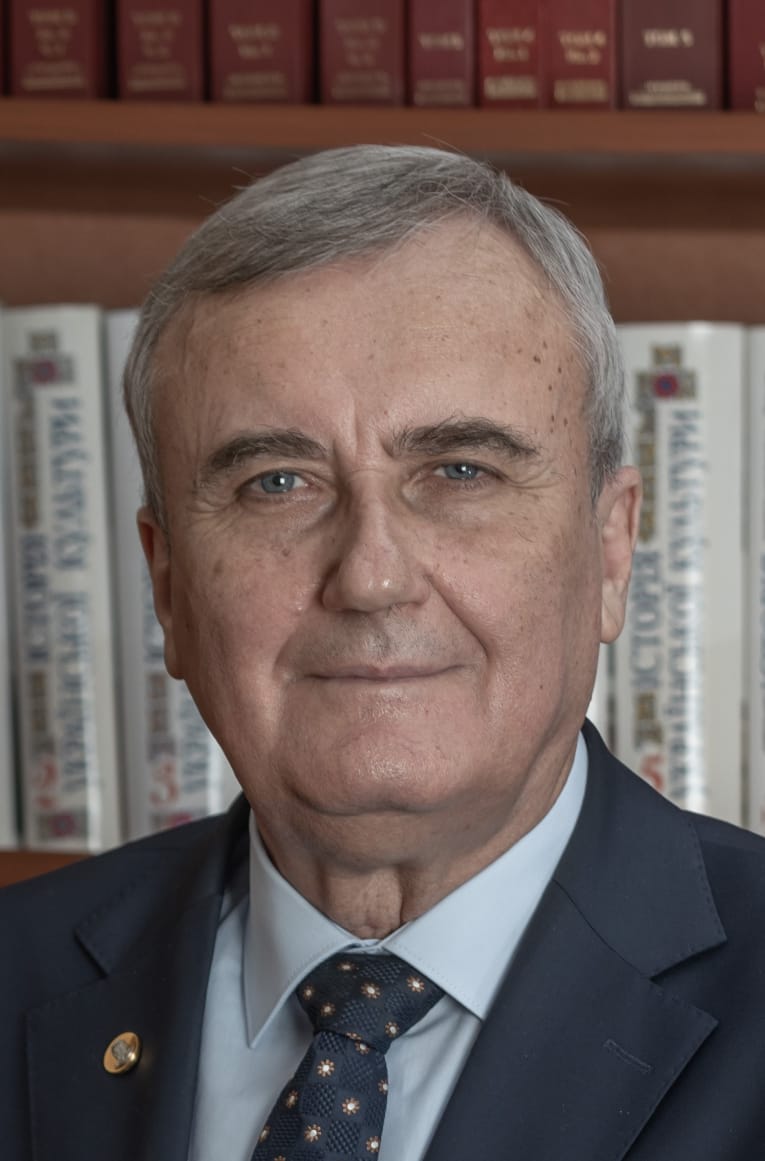
Anatoly Zagorodny
President, National Academy of Sciences of Ukraine (NASU)
Anatoly ZAGORODNY (born January 29, 1951) is a Ukrainian theoretical
physicist in the
field of statistical theory of plasma and plasma-molecular systems,
dusty plasma physics
and condensed matter physics. Corresponding Member of the European
Academy of Sciences,
Arts and Humanities (2004); Full member of the National Academy of
Sciences of Ukraine
(2006); Corresponding member abroad of the Austrian Academy of
Sciences (2012). IIASA
Honorary Scholar (2020); Honorary Doctor of many Ukrainian and foreign
universities
(Dr.h.c.mult.). State Prize of Ukraine on Science and Technology
(2005). Honored Leader
of Science and Technology of Ukraine (2012).
Graduated from Kharkiv State University (1972); Ph.D in theoretical
physics from the
Bogolyubov Institute for Theoretical Physics (1978); Dr. Habil. in
plasma physics
(1990); Professor of Theoretical Physics (1998).
Since 1978, on research positions at the Bogolyubov Institute for
Theoretical Physics.
Professor of Taras Shevchenko National University of Kyiv (1991-2021).
Professor of the
National University “Kyiv-Mohyla Academy” (1992-2005). Director of the
Bogolyubov
Institute for Theoretical Physics (2002-2024). Chief Scientific
Secretary of the
National Academy of Sciences of Ukraine (2009-2011). Vice President of
the National
Academy of Sciences of Ukraine (2011-2020). President of the National
Academy of
Sciences of Ukraine (2020-present).
Editor-in-chief of the Ukrainian Journal of Physics; Chairman of the
Advisory Board of
the Karazin Kharkiv National University. Chairman of the Committee for
the Paton
National Prize of Ukraine (since 2021).
Author and co-author of seven books and more than 200 research papers
on the theory of
plasma, statistical physics and kinetics.
